Every once in a while I get emails from various coaches, trainers, or bloggers who ask me how I’ve been successful as a writer in such a short amount of time. I figured a lot of different people might have this question, so a blogpost is warranted, especially considering the fact that I’m tired of answering this question via emails and will now be able to simply send these folks the link to this post.
I can’t tell you how to make millions as I’m not there yet. I’m not well-versed in marketing so I’ll steer clear of those methods. What I can tell you is what I’ve done to be taken seriously in the field and how I’ve stack the odds in my favor for success. Your path will be much different than mine, but hopefully you can learn from the route I’ve taken.
Decide How You Measure Success
The first step to success is to figure out exactly how you want to be successful and then work backwards from there. As Steven Covey says, “Begin with the end in mind.”
How you measure success will play a big role in your approach to a career in fitness. Most people determine success by either 1) the amount of money they make, 2) their popularity and influence, or 3) the number of people they help. If you go about it right, then you can do a good job of succeeding in all three categories.
If your goal is solely to make the most money, you’ll need to spend most of your time studying marketing. Sadly, you don’t need to know that much about fitness to make good money in this field. If you want to be popular and taken seriously in the fitness industry, then you’ll need to study all aspects of the game, from our history, to our terminology, to our movers and shakers and their beliefs, to the various hot topics surrounding our field, to the science and varying philosophies of training. If your goal is to do the greatest amount of good, then figure out a way to reach the masses for free and make sure you promote safe and effective strategies.
There are definitely ways to reach a happy medium and simultaneously achieve financial, popularity, and altruistic success. And if you can’t pay the bills as a writer, then you won’t be able to continue helping people unless you’re independently wealthy or have steady side income flowing in, so it’s wise to figure out how to make money from your hard work.
There is nothing wrong with being the strength coach, personal trainer, or physical therapist who simply lays low and does a kickass job with his athletes/clients. In my book, this type of person is a huge success, even though most fitness folks will never know his or her name.
Personally, my sole goal isn’t to make the most money possible. This is why I publish journal articles and write abnormally long blogposts such as these. The journal publishing process is a long road and you don’t earn any money for doing so, but it’s very rewarding and is one way in which you get taken seriously in the field by like-minded fitness professionals. I have plenty of goals and down the road I could see myself spending time as a trainer, a strength-training facility owner, a researcher, a professor, a speaker, and a writer.
I will now offer some advice and discuss some qualities and habits that have allowed me to be successful in the strength & conditioning field.
Have Patience
Most people don’t know this, but before ever submitting an article to a website or posting a blog, I spent:
- Eighteen years lifting weights with probably a hundred different lifting partners experimenting with all types of systems including HVT, HIT, HFT, bodypart splits, lower/upper splits, push-pull splits, and total body training
- Twelve years training hundreds of clients as a CPT (eight of those years having a CSCS)
- Tens of thousands of dollars on strength training equipment from Elitefts and Perform Better
- Three years operating my own facility in Scottsdale
- Thousands of hours reading and researching on the internet, including time spent lurking on forums, reading all sorts of methodologies, and delving into different topics
- Hundreds of hours with electrodes hooked up to my muscles to learn the relationship between resistance training and electromyography
For this reason I can always tell which writers really train and which writers just pretend to train, and which writers are just trying to stir up controversy or pretending to be an expert on something. Last week one of my physical therapist buddies jokingly called me “The Best Bullshit Detector in the Industry,” and though I’m not saying it’s true, I do know that much of my ability to detect bogus claims is due to the thousands of hours I’ve spent in the weightroom.
Don’t foolishly think that you deserve to publish articles if you’ve yet to spend sufficient time in the trenches.
Sacrifice
This wouldn’t be a big deal for some folks as they’re not well-connected, but I am – in Phoenix. Until now, I’ve lived in Arizona my entire life (35 years). I hang out with my family every single week. I have the best mom in the world, the greatest dad, an awesome older sister, a badass identical twin brother, an amazing niece, wonderful step-parents, two hilarious stepbrothers, and two incredible step-sisters. I’m super-close to my family and we make time to see each other each week. I go to IHOP with my mom and have breakfast, I watch movies with my brothers, and I have dinner with my family every Sunday and we typically watch television, play board games, and/or eat Mexican food together (Ajo Als is our favorite).
I also have a great group of friends back home. We watch UFC fights together, we go out together for a night on the town from time to time, we train together, we have barbeques, and we rent and watch movies every so often.
Equally important, I was on-and-off with an amazing girl who treated me very well. She is incredibly beautiful on the inside and the outside, and she gets along very well with my family. I think I’ll always wonder what might have been with her if I didn’t move away. Being out here makes me realize how special she is and how much I took her for granted.
I lived in a great 3-bedroom house with a kick-ass garage gym, giant barbeque, pool, and plasma tv’s, all in pretty much the safest Scottsdale neighborhood which was a block away from a park which made it very convenient to engage in sled dragging, plyos, medball drills, sprints, and agility drills.
Some would say I had the perfect life, but I’ve never felt content with my knowledge. I wanted to learn how to research, how to use sports science technology, and how to conduct statistical analyses. I also wanted to get a good grip on prior research so I know what evidence is out there and what evidence is not out there. I have so many curiosities and I want to be able to test hypotheses throughout my career as a strength coach and personal trainer, so these skills will be invaluable as time passes.
Earlier this year, I left my good life and took off to New Zealand. I can’t even begin to tell you how much I miss everyone, how lonely I get sometimes out here, and how much I took everything and everyone for granted. I’ll be visiting home for a month from December to January and cannot wait to be around my family and friends once again. I even miss all my family and friend’s dogs so much I can’t wait to play with them.
The point is, I have sacrificed very heavily to come out to New Zealand and learn from one of the best schools imaginable – AUT University. I still sacrifice my social life and opt to work too hard. I told myself that I was going to work my ass off for three years and make the most of this experience, and it’s paid off very nicely so far as I’m already much smarter than I was a year ago today.
Work Harder than Your Colleagues
I’m not the smartest guy out there, but I work harder than almost everyone. Here’s what I’ve done in the past nine months:
- Spent 3 weeks revamping the curriculum for a master’s level strength training course with my professor John Cronin titled Enhancing Muscular Performance
- Published 3 peer-reviewed journal articles with seven more in the process of being completed, the first of them which is already the most popular article in the journal’s history
- Trained 3 clients and 8 online distance clients each month
- Deadlifted 540 lbs exactly 6 weeks after a biceps tendon repair surgery
- Wrote 19 articles for various print magazines, online magazines, and blog interviews
- Befriended an amazing team of strength coaches, sports science professors, researchers, PhD students, physios, gym owners, and lifters
- Created an all-day glute workshop and presented it on 3 occasions to around 100 coaches, trainers, and physios
- Wrote an entire eBook on female strength training with my friend Kellie Davis which just turned into a book deal with Victory Belt Publishing called Strong Curves
- Landed a book deal on bodyweight training called Bodyweight Strength Training Anatomy with Human Kinetics and already finished 6 chapters
- Posted over a hundred blogposts and newsletters, filmed dozens of Youtube videos, stayed active on Facebook and Twitter, and kept current in the online strength training industry
- Read hundreds of journal articles, most involving strength, speed, power, biomechanics, the glutes and hamstrings, spinal biomechanics, or physiotherapy
- Performed tons of work as a graduate assistance including teaching twelve different labs, grading papers, answering emails, filming instructional videos, and working with other staff and students on various projects
- Spoke at 2 seminars on the core and the glutes and secured 4 more speaking gigs ranging from November to December in New Zealand and Australia
- Finishing up my D9 (thesis proposal for my PhD due in the first year)
Pretty good for under a year’s worth of work!
Screw Sleep
I think I average around 5-6 hours of sleep per night. Most of the other hours of the week are spent learning and writing. As you can see, I don’t sleep much. You can sleep when you’ve made it. Until then, work.
Success usually comes to those who are too busy to be looking for it. – Henry David Thoreau
The 100-Hour Work Week
As I mentioned earlier, I don’t think there are many people who work harder than me quite simply because it’s not humanly possible. More often than not I probably work over 100 hours per week. I read Tim Ferriss’ 4-Hour Workweek several years back and was quite intrigued, but that lifestyle wouldn’t suit me. I’m too damn interested in science. I’m curious about everything and love to learn and investigate. Down the road I’d like this lifestyle but not until I’m satisfied with my knowledge and skill-set, my accomplishments, and my retirement.
During the day I’m training clients, training myself, writing programs, writing articles, reading blogs, experimenting with force plates and other technology, and having discussions with other strength coaches, researchers, and professors. Come night-time I fight sleep like a child. Quite often I find myself nodding off and then I’ll get up and walk around so I can stay awake to finish whatever I’m working on. I know it’s not the healthiest lifestyle, but it’s a byproduct of knowledge-seeking and zeal.
I don’t have a wife or girlfriend, I don’t have any kids, and most nights I choose to stay home and work. Most of my friends and colleagues have too many duties and responsibilities to dedicate as much time as I do to learning about strength training science. For example many have roles as husbands or fathers which require considerable time if you do it right. I would like to get married and have kids one day but right now I’m just taking advantage of the fact that I have plenty of time to study. One day I’ll be too busy spending time with my wife and kids to be able to do so and I’d regret not working harder when I had the chance.
Get Your Learn On
Your learning should be based around your goals. If you’re trying to be the best strength coach you can be, then you should spend more of your time coaching. If you’re trying to be a popular writer then you need to read and learn more scientific information, and you need to write more. You should always train hard and experiment with different exercises and methods, and it’s important to stay in shape so you can accurately evaluate these methods. I learn a ton through training myself, training others, having conversations with other coaches and researchers, attending workshops, reading blogs, and reading journal articles. All ways of learning are synergistic and serve as roots that blend together to form a tree.
If you spend all your time training others you’ll probably be just another average trainer. None of the smart coaches today thought up all their ideas. They learned through reading and attending seminars and applying the knowledge they gained to their craft. If all I did was train people I wouldn’t have learned a tenth of what I know today as I’ve been able to “steal” from all the best in the industry and incorporate the best of their methods into my arsenal.
Read Journal Articles and Connect With the Best
Once you’ve spent a considerable amount of time learning how to lift, how to coach, how to teach proper form, how to progress a client, and how to write effective programs, you’ll benefit greatly from delving into the literature and aligning yourself with highly intelligent individuals.
I can’t begin to tell you how much faster my rate of learning is now that I’ve made good connections. Once you possess a strong knowledge of the literature you can speak to other researchers with intelligence and they’ll be more apt to want to befriend you. It takes time to become an expert with the literature as there is so much backtracking to be done and new research comes out every month which makes it hard to stay on top of things. But if you stick with it over time, you can do it.
I know of most research as soon as it comes out, and I know of plenty of articles before they come out as my research friends share inside information with each other prior to publication. In fact, over the next year some very exciting research will emerge in the sport science realm and it sucks being sworn to secrecy.
I’m pretty confident that I’ve read more literature on sprinting, power, speed, hypertrophy, biomechanics, and the spine than any online writer out there. Many coaches feel that you don’t need to understand forces, torques, power measurements, or joint loading to excel, to which I’d agree. But most intelligent coaches have a natural intuition about strength and power science and can understand it quite easily when taught because they’ve been contemplating the concepts in their minds for years. All knowledge helps you become a better coach and a better writer as you start connecting meaningful dots over time.
Researchers aren’t superior in terms of strength training knowledge or sport knowledge; they’re superior in terms of their mindset and problem-solving abilities. They understand what is known, what’s not known, how to go about trying to answer a question, how to formulate solid experiments, and the level of confidence they should possess regarding existing evidence pertaining to a certain topic.
Two years ago I had zero connections with researchers and now I’m happy to be in touch with many of the brightest researchers from various fields. I know who the top experts in the world are on nearly every topic and can reach out to them for ideas, information, and support.
There are around ten articles I could write right now regarding exciting research over the past few months alone, but I’m so busy learning that I don’t have time to put it down on paper.
Down the hall from my office at my school (AUT University) I have John Cronin, Nigel Harris, Matt Brughelli, Patria Hume, and Will Hopkins at my disposal. John is one of the best methodological researchers in the field, Nigel and Matt know a ton about power and speed development, Patria is a world renowned Biomechanist, and Will is probably the most popular sports science statistician in the world. We just opened up a $2.6 million dollar lab that has all sorts of equipment, including force plates, isokinetic dynamometers, treadmills that measure forces, motion-capture systems, electromyography, linear positions transducers and accelerometers, timing gaits, and ultrasound. Lately I’ve been experimenting with the force plates and have some interesting findings to share with you down the road.
Befriend Caffeine
This probably isn’t the best advice in the world, but it’s worth mentioning that I drink around six Coke Zeros per day (I like Diet Cherry Dr. Pepper but that’s not easy to get out here in NZ) and I sometimes throw an energy drink in the mix for good measure. Again, not the healthiest lifestyle, but it keeps the engine revved.
Make Quick Food
Tasty meals take a lot of time to prepare. Nine out of ten of my meals are either:
- Three fish oil caps and a protein shake with 2 scoops of whey and a cup of milk
- A bunch of nuts (cashews and macadamia nuts), fruit, yogurt, and cheese
- Eggs or omelettes with veggies and meat
Sure it’s boring, but less time spent cooking equals more available time for learning. Food preparation doesn’t need to take up much of your time throughout the day.
Lift
You don’t have to be the fittest guy in the world to be taken seriously, but every ounce of muscle and every less bit of fat improves your credibility. So does strength.
People like to take advice from someone who is strong and/or looks good. It’s always been this way and it will always be this way.
Furthermore, as I mentioned previously, how in the hell can you test out new exercises or methods if you don’t train? You should always experiment with things on yourself before prescribing them to clients.
Make Good Fitness Friends
Try to find like-minded people to hang out with. My three best buddies here in Auckland are Matt Brughelli, Cesar Meylan, and Travis McMaster. These guys are published and extremely interested in sports science. Matt is a professor while Cesar and Travis are strength & conditioning coaches. When I hang out with them we inevitably end up discussing strength training and biomechanics topics. In this manner I’m still “working” while hanging out since I’m acquiring new knowledge and viewpoints on various topics.
On a side note, here’s an awesome article that Travis wrote on Variable Resistance Training (most experts incorrectly refer to bands and chains as “accommodating resistance” when it should be called “variable resistance”). Cesar is an excellent coach and is very detailed and thorough.
I’ve also become quite close with Brad Schoenfeld who is a researching machine and has trained thousands of individuals in his lifetime, including pro athletes and celebrities. And I talk to Ben Bruno quite often as we can talk about exericses for hours. Though there are plenty of highly intelligent internet experts, I tend to flock to regular strength coaches, lifters, and researchers, who don’t have internet presences. At the risk of sounding rude, I enjoy their fresh views and untainted/unbiased mindsets, as many internet folks are overly cocky about what they think they know, despite the fact that they usually don’t have the slightest clue about the literature or even the scientific method for that matter, and their egos are usually too big to be able to engage in productive discussions. Some of the talks I have with my friends are extremely high-caliber conversations, and though we often disagree, we always remain civil.
Train Others
I’ve seen some folks get lost in La La Land in terms of research. Training others keeps you grounded and prevents you from getting too esoteric. Many of my best ideas occur to me while I’m training others. More important, you should always train at least a few individuals throughout the week as doing so allows you to test out various methods and refine your protocols. Never step too far away from training other people no matter how busy you get as a writer, researcher, or owner of a strength-training facility.
Right now I’m training 3 different clients from various walks of life and though it doesn’t involve a lot of time, it’s critical in terms of my growth as a strength trainer.
Get Out of Your Comfort Zone
Knowledge is intimidating. It’s not easy to learn new things. Often I look at something complicated and think, “You’ve got to be kidding me.” For example, sprint kinematics and kinetics, spinal loading, and inverse dynamics are all highly complicated topics.
Your success is directly related to your willingness to get out of your comfort zone.
Don’t be Afraid to Fail
Before stepping onto the strength & conditioning scene, I kept waiting for the right opportunity to emerge, wondering if I was indeed ready. Eventually I just decided to go for it. I submitted my first article, I started a blog, I got on Youtube, Facebook, and Twitter, and I put myself out there. When you feel confident in your knowledge and feel you’re ready, go for it. You will fail. You will learn from your mistakes. You will grow. You will look back and laugh at how stupid you once were.
Stop Watching so Many Sports and Playing Video Games
Quit watching so much sports and playing so many video games. I rarely ever turn my television on. These are major distracters and killers of productivity.
Develop Thick Skin
The strength & conditioning industry has always been plagued with shoddy science. Many researchers and physical therapists are skinny geeks who wouldn’t ever go near a power rack. Many strong lifters and athletes are meatheads who wouldn’t ever go near a laboratory. It’s quite rare to see someone who talks the talk and walks the walk and possesses both practical and scientific knowledge.
Strength coaches and especially physical therapists are very gullible and prone to falling for pseudoscience. If you challenge these folks you’ll probably be met with severe hostility no matter how tactful and diplomatic your approach. I’ve been called more names than almost anyone in the field. It’s not easy to wake up to find that some writer or coach has called you a bunch of names or dismissed your theory without experimenting with the methods or even considering the possibility that he’s wrong.
People often ask me what the biggest problem in our industry is. I always tell them it’s men. Males by nature are cocky, territorial, and sometimes downright absurd with their logic. If you rise up like I have and gain a scientific understanding then you’ll be able to pick these folks apart, but unfortunately science often doesn’t matter. Think of all the hokey beliefs that exist today worldwide. A majority of young coaches and lifters are highly susceptible to hype and prefer to follow pseudoscience or magic rather than logic and science. Many of the top fitness professionals are blinded by their own biases (we’re all biased to some degree).
For this reason, if you question the status quo you will probably be hated by many. Stand tall and develop thick skin as you’ll need it.
Attach Yourself to Science and Flow with Research
Trends come and go. Some methods are a flash in the pan while others stick. Be skeptical of new claims but remain open-minded. Flow with science, not with gurus. Learn both sides of a debate and make an educated decision based on logic. Learn how to go about answering questions and master the scientific method. If you consistently update your methods based on an evidence-based approach and you’re always seeking knowledge and attempting to uncover the truth, then you’ll always have fans who appreciate you.
If you were wrong about a hypothesis, come out and admit it. If you don’t know the answer to something, just say, “I don’t know.” People will appreciate your honesty.
There are plenty of gurus in this profession who have made a ton of money promoting pseudoscience. You can choose to go down this path and can even make a lot of money. But these people are not taken seriously with the higher-ups. You don’t see them being asked to speak at conferences, you don’t see Olympic teams copying their methods, you will never see them publishing a journal article as the peer-reviewers would eat their claims for lunch, many of them are forced to formulate their own cults as they’re not welcome in intellectual circles, they typically can’t get along with other fitness professionals, and they have to live stressed-out lives since they constantly have to defend their bogus claims.
I’ve also noticed that many gurus turn weird over time – really weird. In order to not let this happen to you, stay grounded by having plenty of colleagues in various circles – lifters, coaches, physical therapists, and researchers.
If you flow with science then you’ll be taken seriously, you’ll be welcome in legitimate circles, and you’ll stand the test of time.
Conclusion
Obviously most people’s lives won’t allow them to go to such great lengths as I have to learn sports science and biomechanics. The point is to strive for mastery and never quit learning. I couldn’t imagine a realistic situation that would be better for maximizing my knowledge and learning, but it’s taken me years to get here. If you read my glute eBook then you know that my situation has done a 180° as a few years back I didn’t have any colleagues in the profession. Literally I had none. Now I have way too many! I can’t log onto Skype without several fitness colleagues trying to track me down. I’ve worked quite hard to develop systems to maximize my learning, and if you’re similar minded and desire increased knowledge in strength & conditioning then you’re probably pretty envious of my disposition as I’m currently living in a sports scientist’s paradise.
Just know that you lie in the bed you make for yourself. If you want it bad enough you will get there.


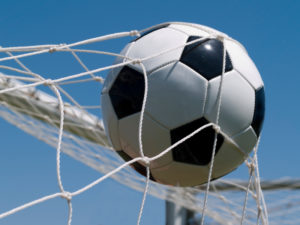
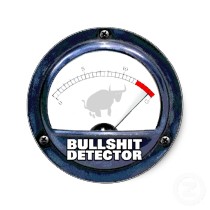

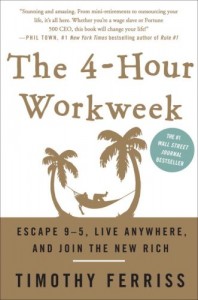


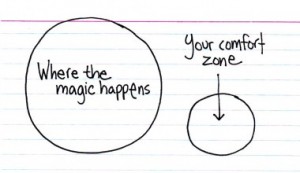

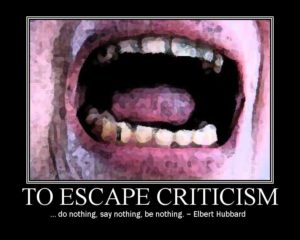
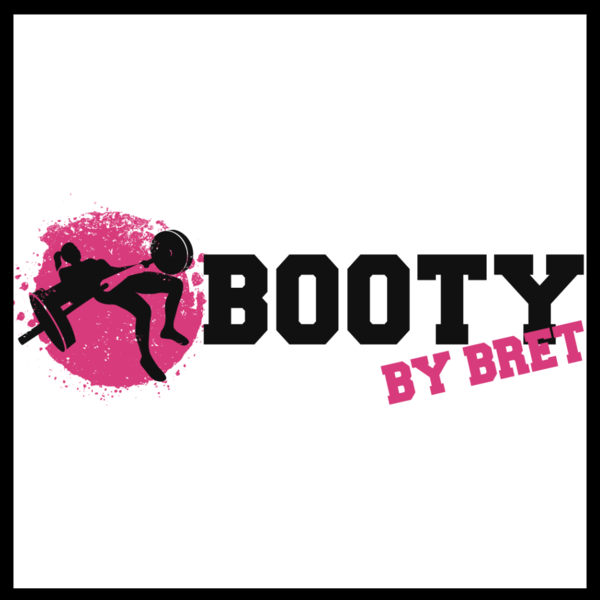
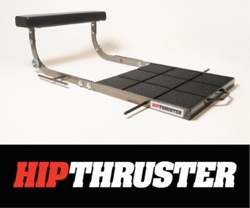
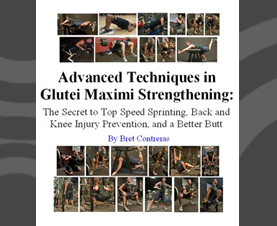
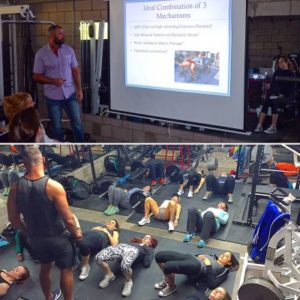
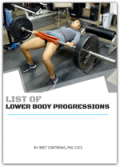
Great article Bret!
Very motivating to see how hard you work & was nice to get a peek into
your personal life.
I’m not much of a caffeine guy. More of a Biotest Hot-rox person
Thanks David, I can’t do coffee or tea as they make me too wired, which is strange considering energy drinks don’t phase me much. Go figure…
Thanks for this Bret. I hope I at least partially wrote it although I know your journey wasn’t quick. Any professionals build up on the internet has to be, by definition, quick because once somebody hears about you you’ve probably done years and years of homework, study, networking etc. I’ve had the same conversation with countless internet fitness pros.
It’s nice to have an honest assessment of where you are as I don’t think many of your readers actually understand what you’re doing.
What you didn’t mention is the amount of colleagues/fan/admires that you communication with. I have been impressed with the quick response time and care you take with coaches who have questions for you or just want to connect on a professional basis. So thank you for that, maybe that can be your next article…
Thanks Jon! I appreciate the kind words.I actually do have more to say and might do a follow up to this sometime soon. It’s funny how many ideas come to you after you’ve already submitted a post 🙁
I hope you’re doing well my friend, BC
HAHAHAH!!! CRAPPED MY PANTS LAUGHING when you said, “It’s actually variable resistance, not accommodating resistance” LOVE IT!!!
Well I actually argued with Travis today and think I convinced him otherwise…bands and chains “accommodate” the strength curve as long as you’re performing exercises with ascending strength curves. But they don’t for exercises with descending or bell-shaped curves. Cheers!
Bret, I didn’t know you have a twin! My twin brother lives out in Queen Creek, AZ. Regarding the blog, I think the part that hit me the hardest was what you had to say about “4-hour Work Week.” I was in the rut thinking that success was only working 4-hours a week and having time with my family. It just seems that there are a lot of fitness guys out there rolling in dough, and then talking about how they travel all over the world and do what they want when they want. The two almost seem incompatible to me. Its been difficult to determine my definition of success. Do I want to chase money, have time with my family or be highly regarded in the fitness industry? As you said, all three would be ideal. But that is a bit far from reality.
Just something I was thinking and wanted to thank you for posting.
Even if I had a ton of money I’d still work too much as I’m just so curious about things in S&C. I have ideas for future studies for strength, speed, power, hypertrophy, etc. Too much we don’t know right now!
One thing is certain; you have to be passionate or you won’t make it.
Thanks for this Bret. As always it shows just how hard of a worker you are, makes me realize the work I need to put in. Keep it up.
Glad I inspired you Blake!
Great stuff as always Bret! It sounds like you have access to an amazing facility and are connected with extremely intelligent coaches/professors. Glad to hear things are going well.
Just one question, Can you give me some recommendations for literature (books) relating to biomechanics that provide practical as well as scientific information? Thanks man.
Hi Damon, all the biomechanics resources are written with examples using gait, track & field, sports, etc., with no good ones written for the purpose of strength & conditioning. Basic Biomechanics is a good start, but it gets very complicated as you delve deeper with some of the Biomechanics experts disagreeing on terminology, methodology, etc. I wish there was a good resource that I could recommend but I have 4 different text books and I don’t like any of them that much. Sorry, BC
But do you have a top ten (or so) of textbooks which you would considered required reading?
Your blog & book made me interested in learning more about the current science of exercise science.
You’re my hero.
Haha! Thanks Matias. I appreciate that.
Best article of this type – by a long shot. Sounds like its been a fantastic year!
Hey Brett, do me a solid – remind me where those brilliant cards are on the net (“where the magic happens”…). Thanks.
It’s been a fantastic year in terms of accomplishments and it’s been exciting in many ways but I’d like to have more of a balance. I took on too much and hopefully next year I can smell the roses a bit more often.
Outstanding article, Bret!
What I dispise the most in the fitness industry is trainers who once built a legimitate reputation through writing quality pieces, coaching successful athletes, being respectable people allaround … and then years later turning into sell-outs that would do anything for a dollar. We all know them.
As for your twin brother, have you ever compared training systems and what they do to you and him with your similar genetic profile?
Thanks, and please keep up the great work!
All the best,
Ted
Ted, I should write an article about this but I wouldn’t want it to be offensive toward my bro. I train with progressive overload in mind and he isn’t so concerned with that. I’ve managed to build a more impressive physique, to no surprise. He trains hard, but I feel he could train smarter. – BC
Hi Brett,
Awesome article once again. How do we find out news on your potential seminars in Australia?
cheers,
Ben
Ben, click on this link:
http://www.fmastrengthtraining.com/314
Cheers, BC
Thanks for sharing the FMA link Bret – sounds awesome! (dissapointingly already commited that weekend – doh!) Any luck of something similar in OZ next year? Enjoy your time back home over Christmas 🙂
Bravo!
You are like the Einstein of the s&c community. Extremely rare to find someone who combines the hacker mentality, intellectual insatiability and in the trenches common sense like you do.
Seriously, you should start your own T-Nation type site. Use your insight and drive as leverage to direct others!
I wouldn’t go that far…there are many researcher-types who are much smarter than me in any particular area (biomechanics, muscle physiology, spinal biomechanics, hypertrophy, etc.) but I am indeed proud of the fact that I’m a very well-rounded coach/writer and I have a good grasp of the science and application.
I appreciate the words of encouragement!
Bret,
I totally admire your approach to gaining knowledge. I feel I have a similar thirst, however, I find it very hard to turn off, it’s like Dave Tate’s blast/dust mentality.
What do you do to maintain sanity, energy levels and not burn out. I find I can go for around 10 weeks before I start feeling like I need a break. Mental deload perhaps?
Trust me Nick, I can relate. I too have blast/dust times and I find that I have to shift my workload and spend more time on certain things compared to others, then shift back to something else. For example, last week I spent a bunch of time experimenting with force plates. This week I’m working on a Chapter and a couple new blogposts. Next week I need to work on my PhD and update my powerpoint slides (and I’m speaking at a conference). I get sick of one thing then start on another, then come back to it later when I’m refreshed.
You are an inspiration! So refreshng to know that there are people with such passion for learning! Incredible accomplishments in a year, just reading a few of your articles yesterday…keep them coming! As a mom working full time my ‘spare’ time is limited but I train hard and spend as much time as I can learning more! Thanks for being a quality and thought provoking source of knowledge. Thanks for sharing.
Thank you Heather…glad you’ve stumbled upon my site. Keep on learnin’.
You should be proud, Bret–you’ve followed your curiosity toward a bunch of knowledge, and you’ve used it to help others. I especially appreciate your point on testing out exercises on yourself before recommending them. I’ve worked in several fields, but my retention rate is best in fitness because not only am I studying the thing in books, I’m doing it with my body. The knowledge is seeping in in at least two ways, and it sticks!
I’m the same way…I don’t retain nearly as much in other fields but knowledge seems to stick when it pertains to human movement and biomechanics as I’m so passionate about it. But there are things in our field that seem to put me to sleep, for example periodization. In fact I have a few periodization articles next to my bed and rely on them to put me to sleep at night haha!
I can attest to his commitment. Having known Bret for two years, I can’t think of a time when we’ve talked and he didn’t bring up five or six journal studies he read that week. And this was long before he headed to NZ. He’s skipped nights out with friends because he’s so engrossed in new research, but this type of commitment is what will make dents in an industry that has long held on to old beliefs. Exercise is an infant science and there is so mug we don’t know. It’s passionate people like Bret who will shed new light on subjects we understand very little. He isn’t afraid to rub against the grain, disagree with long held beliefs, and re-evaluate his former ideas upon discovering something new. Those attributes set a precedent for others looking toake their mark in the industry.
And I wrote this on my phone, so forgive the typos.
Wow thanks Kellie! I appreciate your kind words. You’ve had to put up with me for 2 years now. Looking forward to seeing you in another month. – BC
Probably also helps that you’re a hot piece with an XL amygdala. Muchos gracias for the wealth of insight and information you continue to share. Cheers to your continued ( earned and deserved ) success.
A hot piece with an XL amygdala? I can say without hesitation that this is the first time I’ve heard that! Thanks Wenchy and hopefully my success continues to evolve.
Thank you for being so forthcoming. I’m not sure if I am inspired or terrified! I agree about just jumping
Be inspired Naomi. Your efficacy as a trainer will approach a limit, with the first few years of studying showing the greatest leap and successive years showing slow progress. Be kind, caring, and motivating as a trainer and you’re already leaps and bounds above the pack. Keep reading good sites and you’ll be a local expert. Don’t be intimidated by what I’m doing out here. When I had my studio several of the clients preferred to have my employees train them, despite the fact that I was “smarter” than them.
Great article Bret! Makes us very hungry and determined to reach the top. Thanks for the advice and the inspiration. Just being in the industry for one year, we have learned so much from you. can’t thank you enough. Continue to succeed and lead!
I appreciate the kind words Eric and Chris. I will definitely continue with things. You two keep it up as well. Cheers!
Hey Bret:
1. I like that you keep it a bit real, while still being engaged and readable by the masses. Good job, guy. Proud of ya.
2. Thanks for not banning me like Lyle did, the big meanie. I am working on my roller blading, just so I can kick his ass in a race. 🙂
3. Interesting post I saw from coach of the (new) World AA gymnastics champion: http://johngeddert.com/periodization-in-response-to-an-ask-john-question/
He talks about periodization and strength and all. I think gymnastics has been slow to become more scientific about strength training because the skills are so technically difficult. that said, strength makes a huge difference for the athletes and the female team at least has been very hard core about strength testing on basic metric (rope climb and the like) and it seems to have paid off…our female team won the gold medal and basically has been the physically strongest team worldwide for a decade now.
Thank you, thank you, thank you for writing this piece! The article is from real deal experience! You made me really think about what I’m getting into (S&C) and it inspired me to dig deeper. Truly, sir…thank you.
Just tonight I told my buddy that I think I was trying to juggle too many things. This is exactly what I needed to read tonight. I’m hoping I can stay motivated to complete everything I set out to do. Thanks for the inspiration.
Amazing article Brett!
As a strength coach looking for ways to make personal development and improve all 3 of the aspects you refer to measure success in this field, this is not only inspirational but eye opening to the level of hard work and commitment you put into being a huge success in the S&C field.
I am planning to be in NZ in March (hopefully) holidaying & visiting family in Auckland. I would be very grateful of any opportunity to connect and learn from you in any capacity, wether in the gym or simply a meeting over three fish oil caps and a protein shake (my shout).
Thank you for writing this article and enjoy more great success with the rest of your time at AUT.
Tom
I just love to read this post. I’m pretty much never a person who complains about having less than ideal conditions, but being aware of them is a good thing, because it helps me find ways to get better nonetheless. I live in Estonia, which has a bit over 1 million people. We have no strength & conditioning facilities, just commercial gmys. My networking options are very limited, because most people in this field are bodybuilders. I pursue self-education, because colleges teach just physical education, which is nowhere near my interest.
I’m glad that I’ve at least found one really bright trainer who has already been a coach for 10 years. Our mindsets align in most things and it’s a true privilege that he helps a complete beginner become better. My passion must have helped.
Even though I’m a beginner, I’m already trying to build an online personal brand for myself. I just want to make sure that I never pretend I’m smarter than I really am. Expertise is relative: If you are a 2 in terms of knowledge, you are still like an expert to a 1. And a 2 can perhaps help a 1 even better than a 10.
My niches as a personal trainer seem to be 1) building the ultimate body for a regular person in terms of function and looks, 2) helping overweight people lose weight. I’m not interested in helping athletes per se, because sport on a competitive level is just entertainment and not healthy at all. I think health should never be less important than achievements, which is the part I disagree in your article.
Currently I’m mostly focusing on functional anatomy as I think this is what creates the basic knowledge for everything else. I want to be able to fix movement issues before building strength on all else. I’ve been struggling with finding a book that connects with me deeply, but right now Anatomy of Movement seems to be my favorite one. I hope to find other good ones as well.
I also want to find more quality people to learn from, but it’s extremely hard, which is why a lot of my effort has gone to finding American friends with whom I can discuss training online. Another option I have is just trying to find more intelligent bodybuilders to discuss training with. That has been a real struggle though since there seem to be none, at least I haven’t been able to find them online. Do you have any advice on finding more quality people or what to focus on in terms of what kind of people they could be?
It was nice to get to know you more. You are a great person! I am just worried about your health a bit now! We need you a life for a loooong time so please look after yourself… eat-drink-sleep in moderation!
All the best
Melek
Great read! I am glad to know there are others like me out there. I often wonder if doing so much all the time is really leading me to my end goals as it seems they are always changing/evolving the more I dive into unknown territory. To always be living outside my comfort zone is something in itself. Like you, I don’t sleep nearly enough. Some nights I wake up thinking of my next step and then I find myself at my computer at 3 am working more. As for failure, sometimes it can be the best thing that happens. During my college internship, in which I was handed an internship with a semi pro athletic team, I failed in a spectacular way! Fell flat on my face LOL. What I learned and took from it all was way more valuable than what I could have learned had I not failed; fall three times, stand up four. Which leads to your next topic of having a thick skin. When I started out in the field of fitness I thought that meant having a thick skin because of clients. What I soon found out was it wasn’t the clients I would have to worry about so much as it was other trainers, pt’s, etc. Some will try their best to make you feel small, like you don’t know what you are doing. What I have learned is that it doesn’t matter what they say as long as ‘I’ have an arsenal of ‘go to’ information from the best resources available and a strong network of professionals that are willing to help me when I don’t know…and believe me when I say, ‘sometimes I don’t know LOL’.
Quick fix foods are great! I really can’t cook anyways…okay I can but the foods I know how to cook come from the days when I was 100 lbs over weight. Now a days I find myself telling my family when they are hungry to grab a piece of fruit or make themselves some eggs. Did I mention I am a mother of four kids…but in all fairness they are ALL old enough to cook for themselves.
I totally understand where you are coming from with this article. I don’t know why I feel the need to push myself so hard but I do. I just figure…what else would I be doing if I weren’t working harder than the rest. I start working at 6 am and finish around mid night…oh and then as I mentioned there are those 3 am wake ups. As much as I hate to admit this I am right there with you on the caffeine, Diet Cherry Dr. Pepper is the best. A little tip for you that I have implemented; drink a glass of water before you hit that can of soda. You may not drink as much. My goals are very much in line with yours. I have started my own fitness business (which comes at the price of being a marketer, accountant, fitness professional, boss, and everything else I am forgetting conveniently, I also work at a gym as a trainer, I am trying to start a non profit (I train individuals for free), I instruct 6 boot camp classes per week (this is where I have fit in ‘my’ workouts), and finally I spend many, many hours doing research and reading articles. As for the sacrifice, I don’t go on vacations as I put all my money back into my work, I am tired at times and find myself questioning why I am beating myself up for all of this, and basically my life is always about work. Sometimes I feel lost in it all. I don’t have the luxury of leaving my job at work so to speak. It is always about the work. I don’t know where it is all leading but it is my hope that my work helps as many people as it can. It is my hope that I am not beating up my body for nothing. And lastly, it is my hope that this will not always be the case. I would like to end with a quote I read this week while scouring the internet in hopes of learning, “It is impossible to live without failing, unless you live so cautiously that you might as well not lived at all – in which case, you fail by default” ~ Rowling
Keep up the good work man! I also love to see that you value knowledge and its APPLICATION! Awesome!
Bummer on the lack of coffee or even no Biotest Spike? Eeeeek.
I have mastered the spike and/or caffeine power nap. For me, I find peak blood levels of spike happen at about 45 minutes and then by 3 hours later I am back to normal.
I actually loved the 4 Hour Work Week and feel the whole point was to not be too concerned about what you for money being your life’s passion.
It is easy for us and your readers here since they are the same; but for many it is freedom for them to realize they can earn money and then have more time to dedicate to their true passion.
I did not see his point was to only work 4 hours a week and sit on your butt the rest of the time. I also found the tips in the book extremely helpful and have had a virtual assistant now since the book came out. It has been a great way to learn to delegate tasks that I should not be doing, nor have the time to do.
Since we (and everyone here) wants to help change as many people’s lives via nutrition and exercise, we need to learn how to be more effective and leverage what we can every day.
Preaching to the choir, I know!
Keep up the great work!!
Rock on
Mike T Nelson PhD(c)
BTW now whenever I am tired of studying, learning, researching you come to my mind and I carry on without thinking that this is damn too hard! 🙂 Because there is someone out there doing the same thing, even better! Thank you for the article
You know I think Ari is the best dog ever, but I’ll be damned if Frankie isn’t a close 2nd. Miss that bitch!
Great post! I’m currently a student at Springfield College studying Exercise Science and love the field. I want to continue to work hard and read literature from Coaches like you. Thanks again!
I have to say that for the past couple of hours i have been hooked by the impressive posts on this site. Keep up the great work.
I appreciate your insight! I have been coaching football and basketball over twenty years. The past five years I have focused more on the strength and conditioning of the athletes I coach. Now I am focused on strength training mixed with sport performance as a business. Thank you for your information and I would appreciate continued information from you. Thanks
Hello, my name is Daniel Becerra. I was doing some research on physical trainers for a school project I have. We basically have to do a speech on someone influential to our personal major. I’m majoring in physical education so I came across you. We have to choose someone who is of the same race/ethnicity and I couldn’t find a a single source that states your ethnicity. May I ask where your parents are from or where your grandparents are from? Thanks a lot. Sorry to bother.
This is the reason I just committed to pursuing strength and conditioning. Always scared about the potential money but I completely share the same passion as you, losing sleep to figure out why a movement is like it is and how to do it better. Really good stuff, thank you for writing this.